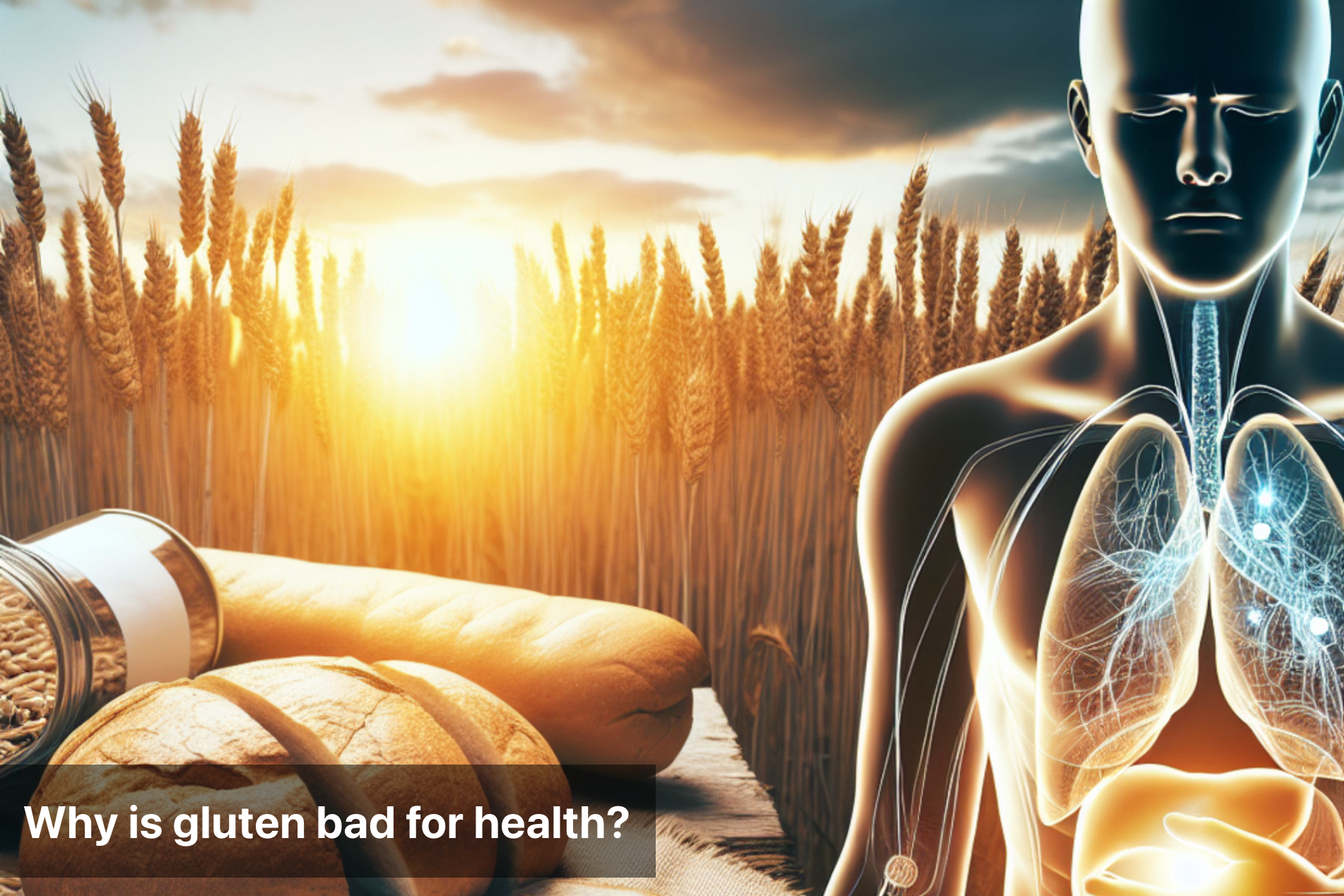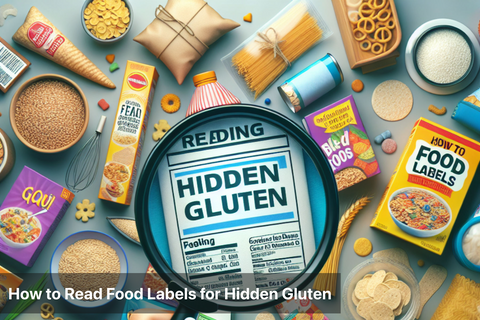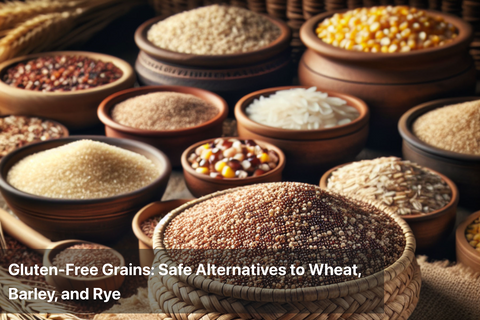
Why is gluten bad for health?
Gluten is a protein found in wheat, barley, and rye, commonly known for its adhesive properties in food products. Despite being a staple in many diets, gluten has sparked debates due to its potential effects on health. Contrary to popular belief, gluten is perceived by some as harmful rather than beneficial.
While some individuals thrive on gluten-containing foods, others experience adverse reactions leading to conditions such as celiac disease or gluten sensitivity. These conditions can manifest in various symptoms like bloating, abdominal pain, fatigue, and even skin issues.
One common misconception about gluten is that it is universally bad for health, but in reality, its effects vary among individuals. Understanding these differences can aid in making informed dietary choices. Additionally, the misconception that gluten is solely detrimental overlooks its role as a source of certain nutrients in the diet.

What is Gluten?
Gluten is a group of proteins found in wheat and related grains such as barley, rye, and oats. It is responsible for the elastic texture of dough and helps it rise and maintain its shape. Here’s a quick breakdown:
-
Composition: Mainly consists of two proteins, glutenin and gliadin. Glutenin provides elasticity, while gliadin contributes to dough's extensibility.
-
Function in Baking: Gluten forms a network when mixed with water, trapping gas bubbles produced by yeast or other leavening agents, which helps baked goods rise and maintain their structure.
-
Sources: Found in foods made from wheat (like bread, pasta, and pastries), and can also be present in processed foods where it’s used as a thickener or stabilizer.
-
Health Concerns: Gluten can cause health issues for individuals with celiac disease, non-celiac gluten sensitivity, or wheat allergy. For these individuals, gluten can trigger adverse reactions and digestive problems.
Why is Gluten Bad for Health?
1. Celiac Disease:
-
Autoimmune Reaction: In individuals with celiac disease, gluten triggers an autoimmune response that damages the small intestine’s lining, leading to malabsorption of nutrients and various symptoms like diarrhea, abdominal pain, and weight loss.
-
Long-Term Risks: Can lead to serious complications such as osteoporosis, infertility, and neurological disorders if not managed properly.
2. Non-Celiac Gluten Sensitivity:
-
Digestive Issues: Causes symptoms similar to celiac disease, including bloating, gas, and abdominal discomfort, without the autoimmune damage to the intestine.
-
Other Symptoms: May also contribute to headaches, fatigue, and joint pain.
3. Wheat Allergy:
-
Allergic Reactions: Triggers an immune response to proteins in wheat, including gluten, causing symptoms such as hives, swelling, and in severe cases, anaphylaxis.
4. Potential Digestive Discomfort:
-
General Sensitivity: Some individuals may experience digestive discomfort or bloating even without celiac disease or gluten sensitivity, although this is less common.
5. Cross-Contamination Risks:
-
Unintentional Exposure: Gluten-containing grains can contaminate gluten-free foods during processing or cooking, leading to accidental ingestion and adverse reactions for sensitive individuals.

The Impact of Gluten on Health: Risks and Considerations
It is crucial to understand the impact of gluten on health and why it can be detrimental. Throughout this blog, we have highlighted the negative effects of gluten, including conditions like celiac disease, gluten sensitivity, and other potential health issues. It is clear that gluten can have harmful effects on certain individuals and may lead to various health challenges.
For those wondering whether gluten is good or bad, the evidence suggests that, for some people, gluten can indeed be harmful. It is essential to be aware of the risks associated with gluten consumption and take necessary steps to minimize its intake if needed.
To reduce gluten intake and potentially mitigate its negative effects, individuals can consider opting for gluten-free alternatives and focusing on whole, unprocessed foods. Reading food labels attentively, choosing gluten-free grains like quinoa and rice, and incorporating more fruits and vegetables into one's diet can be beneficial.
By making informed dietary choices and being mindful of gluten-containing products, individuals can prioritize their health and well-being. Remember, listening to your body and consulting with a healthcare professional can further guide you in making the best decisions for your health.
FAQs
-
How does gluten affect the body?
Gluten can trigger an immune response in individuals with celiac disease, causing damage to the intestinal lining and leading to various symptoms.
-
Is gluten harmful for everyone?
While some people have a gluten intolerance or sensitivity, not everyone needs to avoid gluten unless diagnosed with a condition that requires it.
-
What are the health risks associated with consuming gluten?
Consuming gluten can lead to gastrointestinal issues, malabsorption of nutrients, inflammation, and in severe cases, autoimmune reactions in susceptible individuals.
-
Can gluten-free products be a healthier alternative?
Gluten-free products often lack key nutrients and contain higher amounts of sugar and unhealthy fats to compensate for texture and taste, making them not necessarily healthier than their gluten-containing counterparts.
-
How can I determine if gluten is negatively impacting my health?
If you suspect gluten intolerance, consult a healthcare provider for proper testing and diagnosis to determine if avoiding gluten is necessary for your health and well-being.
This Blog post is an initiative by Lo! Foods, to provide accurate and Nutritionist / Doctor approved information related to Health. Lo! Foods is India's leading brand for Everyday Functional Foods. Foods designed for specific Health conditions or Needs. Lo! Foods also runs India's largest range of Low Carb Healthy Cloud Kitchens, under the brand names of Lo!, ProteinChef, ATH (All Things Healthy) and DiabeSmart.















Leave a comment
Your email address will not be published.